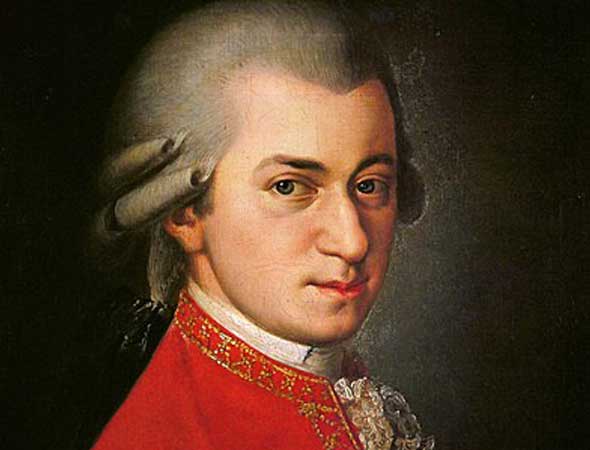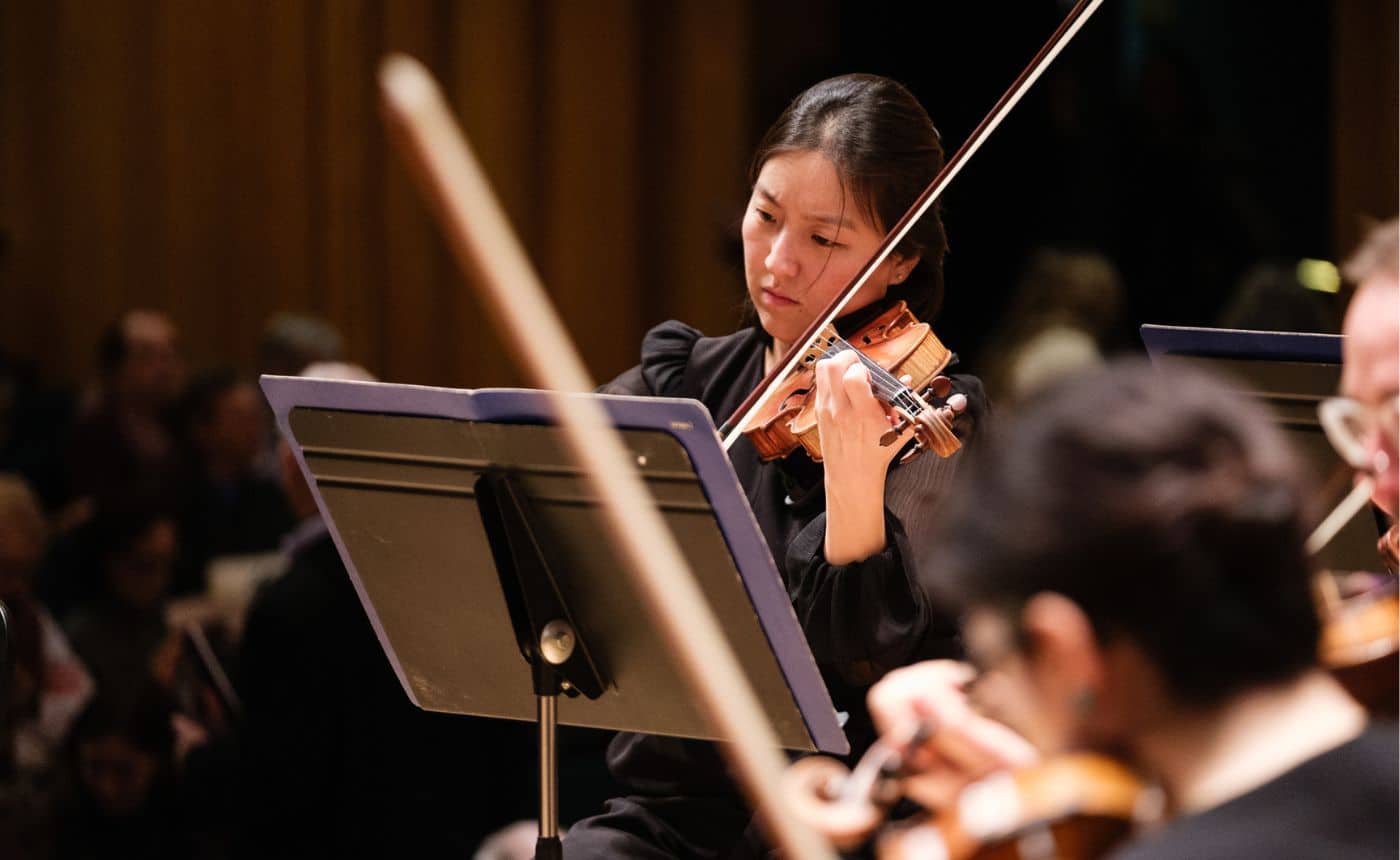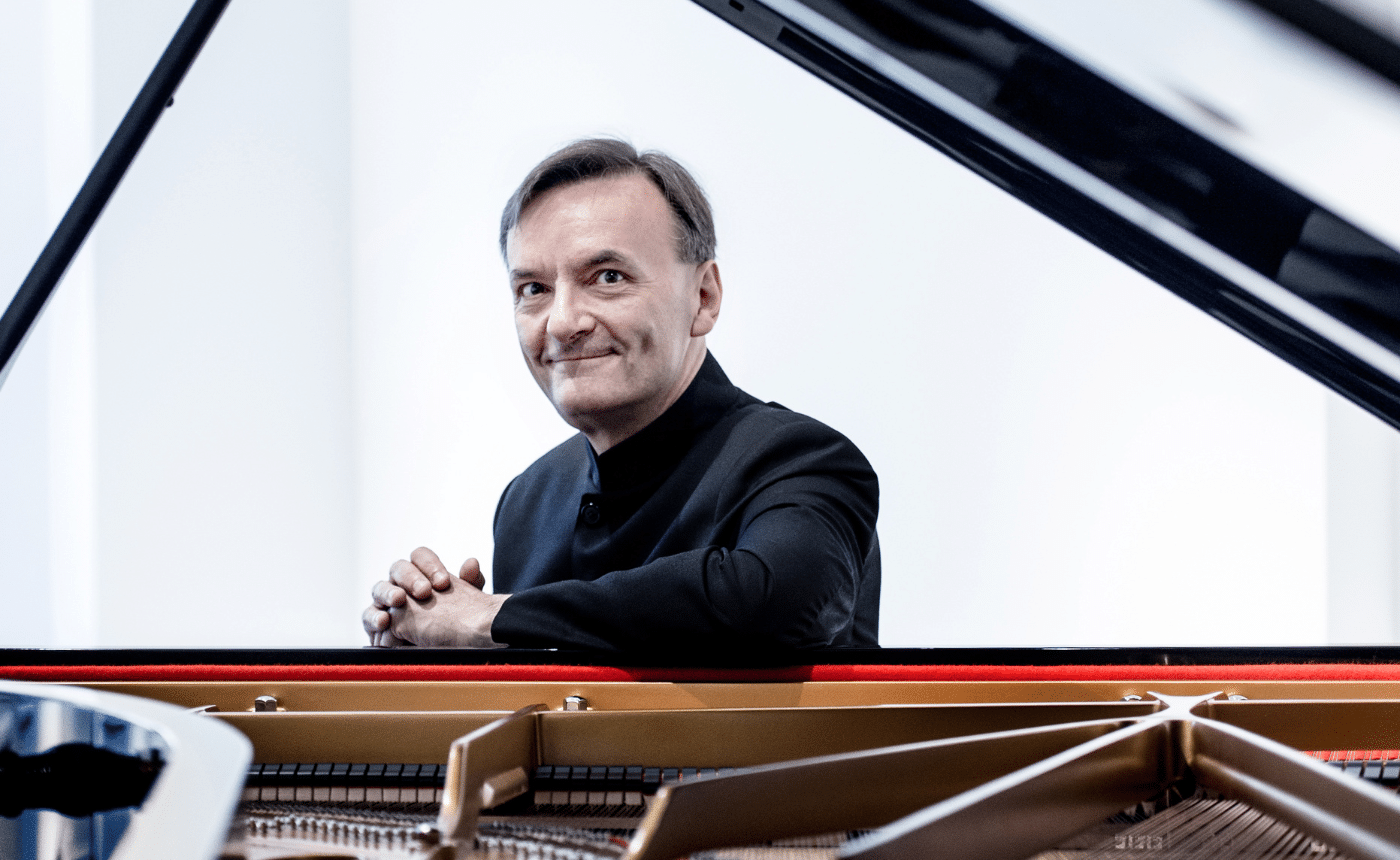MOZART: Horn Concerto No. 3
by Jeff Counts
THE COMPOSER– WOLFGANG AMADEUS MOZART (1756–1791) – It is widely known that the move from Salzburg to Vienna in 1781 was among the most important turning points in Mozart’s career. Life under the insulting yoke of the Archbishop Colloredo had become unbearable, a circumstance for which the composer’s own father found little sympathy. In fact, Leopold often took the Archbishop’s side in the running debate over Wolfgang’s career so when Colloredo finally fired Mozart the younger, it put the family relationship under significant strain. Trips home to Salzburg where likely pretty tense for a while after that, but Mozart sought solace in hard work and friendship to keep things light.

THE HISTORY– What was it like to be friends with an impish genius like Mozart? Was it non-stop pranks, jibes and elbows to the ribs? Joseph Leutgeb could tell you. Leutgeb was an accomplished horn player who spent time in the Salzburg court ensemble while Mozart was there and became close with the composer and his family. Quite close, it turns out, since when Leutgeb moved to Vienna himself in 1877, it was Mozart’s father Leopold he approached for a house loan. Leopold agreed to fund the purchase of the apartment/cheesemonger’s shop, but there is no indication that Leutgeb ever paid him back (or sold a single block of cheese for that matter). The friendship with Wolfgang not only survived, the composer actually defended his friend whenever the issue of non-payment came up. Leutgeb was a master of the valve-less hand horn. The instrument required a lot of physical manipulation to perform chromatic passages and he was a pioneering expert on the “stopping” technique the best players used. Mozart was aware of this, clearly, and the four concerti he wrote for his comrade over the mid to late 1780s all test the virtuosic fences of the day. But back to that question of how a friendship might manifest. It would seem, from the hilarious inscriptions found in the scores of three of the concerti, that these two gentlemen were very tight, and not afraid to laugh at themselves. “Wolfgang Amadeus Mozart,” he wrote of himself in the dedication of the K. 417 concerto, “has taken pity on Leutgeb, ass, ox, and fool in Vienna on 27 May 1783.” Other inserted comments included jabs like: “Try to play at least one in tune!” and “Ah—a billy-goat impression!.” The K. 447 Concerto (No. 3) doesn’t have any of this good-natured ribbing on the page, the same generosity of spirit and genuine respect remain obvious throughout. The slow Romanze movement was written, possibly as a stand-alone gift, in 1783. but the outer movements are more likely from 1787.
THE WORLD– Elsewhere in 1787, the United States Constitution was signed, Turkey declared war on Russia, and 11 shiploads of convicted criminals left Great Britain with the intention of establishing a penal colony in Australia.
THE CONNECTION– Mozart’s Horn Concerto No. 3 was most recently performed by Utah Symphony in 1983. Joseph Silverstein conducted and Jeffry Kirschen was soloist.











